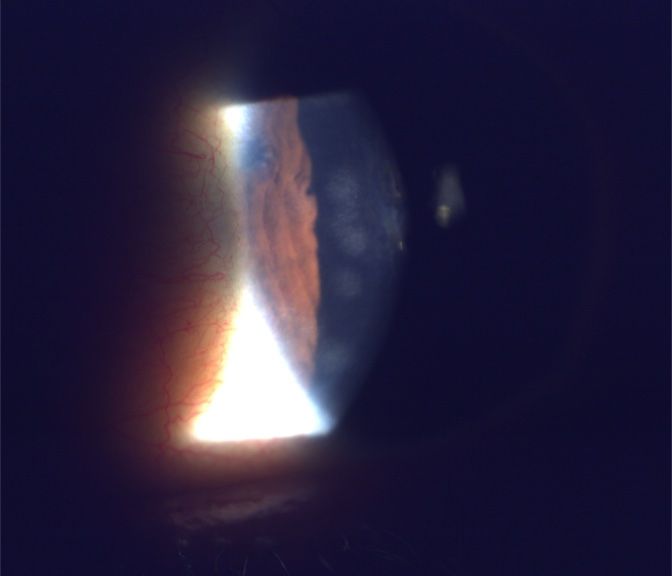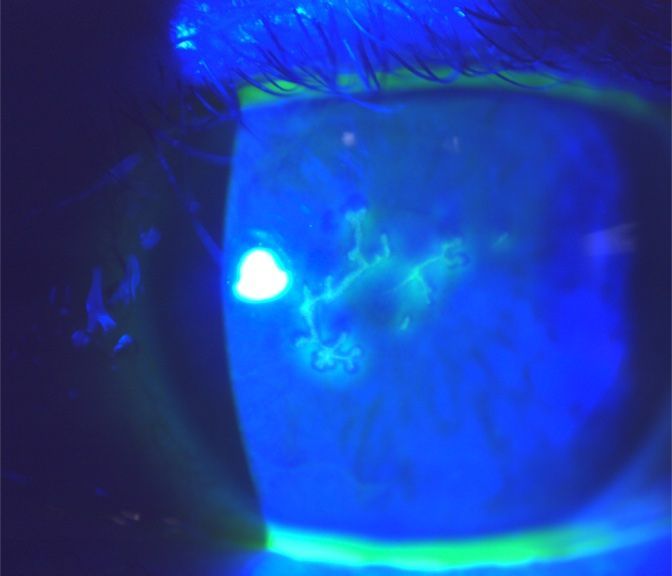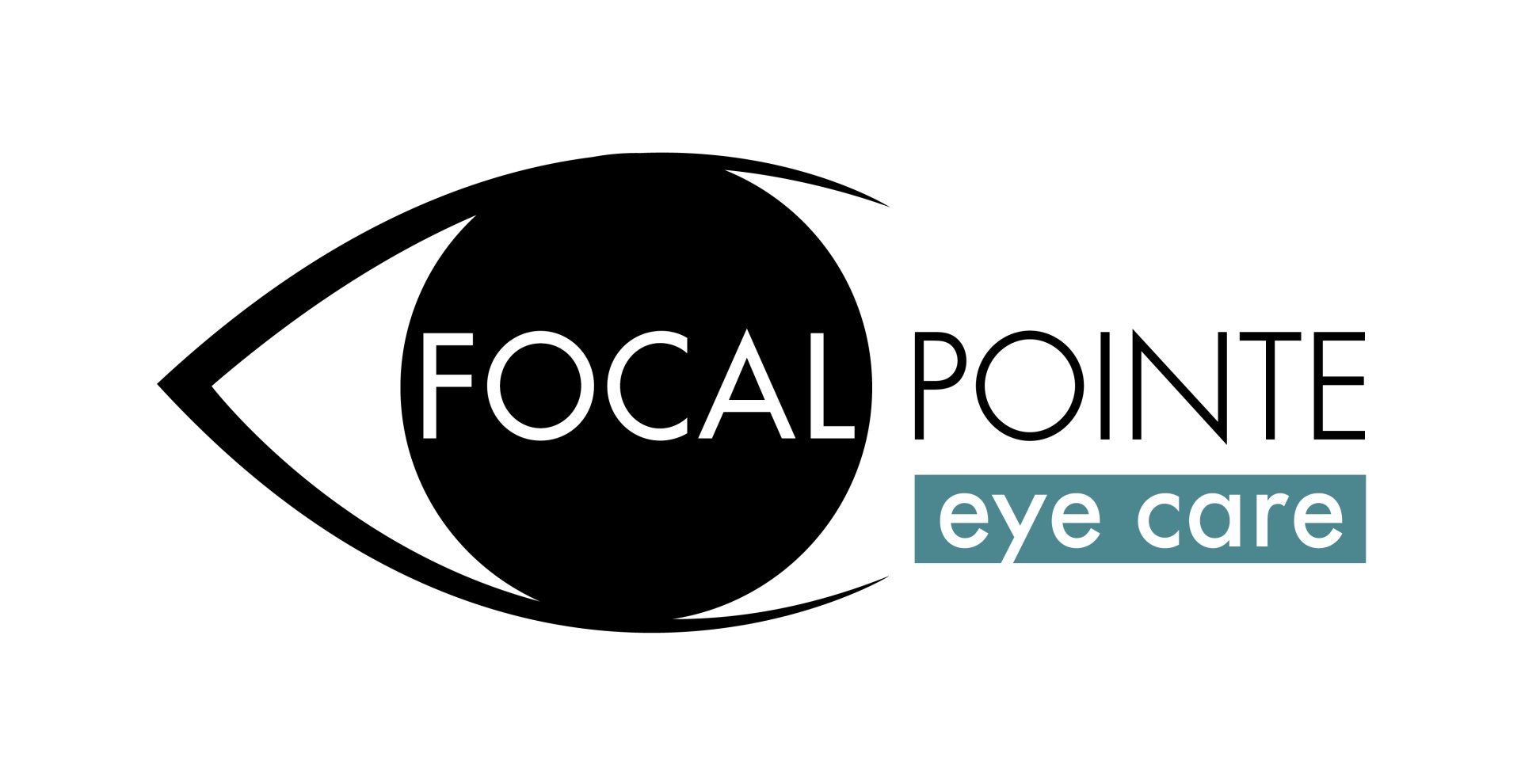Herpetic Eye Disease: What You Need to Know
Did you know the same viruses that cause cold sores, chicken pox, and shingles can also infect your eyes? These conditions, called herpetic eye diseases, are more common than many people realize—and if left untreated, they can cause serious vision problems, including permanent vision loss.
What Causes Herpetic Eye Infections?
Herpetic eye disease is caused by viruses from the herpes family. There are two main types:
Type 1 (HSV-1):
- The same virus that causes cold sores or “fever blisters.”
- Most common cause of herpes infections in the eye.
Type 2 (HSV-2):
- A sexually transmitted form of herpes.
- Rarely infects the eye.

A patient with shingles (herpes zoster) in the eye.
Once a person is infected, the virus hides in the nerve cells of the skin or eye and can “wake up” later. Common triggers include stress, sun exposure, fever, trauma, menstruation, or certain medications.
Herpes Simplex Keratitis
Herpes simplex keratitis is the most common herpes-related infection of the eye. It usually begins in the outermost layer of the cornea, called the epithelium, but in more serious cases it can spread deeper into the cornea, leading to stromal keratitis or endotheliitis.
Herpes Zoster Virus (Shingles)
- Caused by the varicella-zoster virus (VZV), the same virus responsible for chicken pox.
- After someone has chicken pox, the virus stays dormant in the body and can reactivate years later as shingles.
- When shingles affects the eye, it’s called
Herpes Zoster Ophthalmicus.
Symptoms You Shouldn’t Ignore
Herpes Simplex Eye Infection (HSV)
- Red, painful eye (usually one eye)
- Blurred vision
- Sensitivity to light
- Tearing or watery eyes
- History of cold sores
- Hallmark sign: branching “dendrites” on the cornea with tiny bulbs at the ends.

You can see the classic dendrite of Herpes Simplex Keratitis in this image.
Shingles in the Eye (Herpes Zoster)
- Painful, blistering rash around the eye or on the face (often on one side only)
- Rash or sores on the tip of the nose (Hutchinson’s sign) – a strong warning sign for eye involvement
- Redness and tearing
- Pressure sensation in the eye
- Blurred or reduced vision
How Doctors Diagnose and Treat It
Diagnosis:
Eye doctors use a slit-lamp exam to look for the characteristic signs of herpes on the cornea and eyelids.
Treatment:
- Antiviral Medications – Oral or topical medications are the first line of defense.
- Topical Steroids – May be prescribed for deeper inflammation inside the eye (iritis).
- Glaucoma Medications – If eye pressure increases.
- Antibiotic Ointments – To keep skin lesions moist and prevent bacterial infection.
Important: These infections can recur. Managing triggers and following your doctor’s recommendations are key to preventing repeat episodes.
Why Prompt Care Is Critical
Herpetic eye infections are medical emergencies. If left untreated, they can lead to scarring, nerve damage, or permanent vision loss.
At Focal Pointe Eye Care, we’ve helped patients across Tri-State area protect their vision from herpes-related eye disease. Our doctors understand how urgent these infections are and provide the care you need, when you need it.
Frequently Asked Questions About Herpetic Eye Disease
Q: Can herpes in the eye be cured?
A: While there is no cure that eliminates the herpes virus from the body, antiviral treatments can control outbreaks and prevent damage. Many patients go long stretches without symptoms if triggers are managed.
Q: Is shingles in the eye contagious?
A: The shingles rash itself is not contagious, but the virus can spread to someone who has never had chicken pox, causing them to develop chicken pox. Good hygiene and avoiding direct contact with skin lesions reduce the risk.
Q: How long does it take for herpes eye infections to heal?
A: With proper treatment, mild infections can improve within 2–3 weeks. More severe cases may take longer, especially if the cornea or inside of the eye is affected.
Q: Can herpetic eye disease cause permanent vision loss?
A: Yes. Untreated or recurrent infections can scar the cornea, reduce corneal sensitivity, and cause permanent vision loss. That’s why early treatment is so important.
Q: What should I do if I think I have herpes in my eye?
A: Contact an eye doctor immediately. Do not try to treat it yourself with over-the-counter drops. Prompt treatment is the best way to protect your vision.
When to Call the Eye Doctor
If you experience:
- Sudden eye pain or redness
- Blurred or reduced vision
- A shingles rash on the face or near the eye
- A cold sore with new eye symptoms
👉 Call our office immediately to schedule an emergency appointment. Early treatment is the best way to prevent permanent vision damage.
Herpetic eye disease is serious—but with fast diagnosis and proper treatment, vision can often be preserved. If you ever notice the warning signs, don’t wait. Contact our office right away.
About the Author
Dr. Megan Fisher is an optometrist at Focal Pointe Eye Care in West Chester, Ohio. She is dedicated to providing comprehensive eye care for individuals and families.

